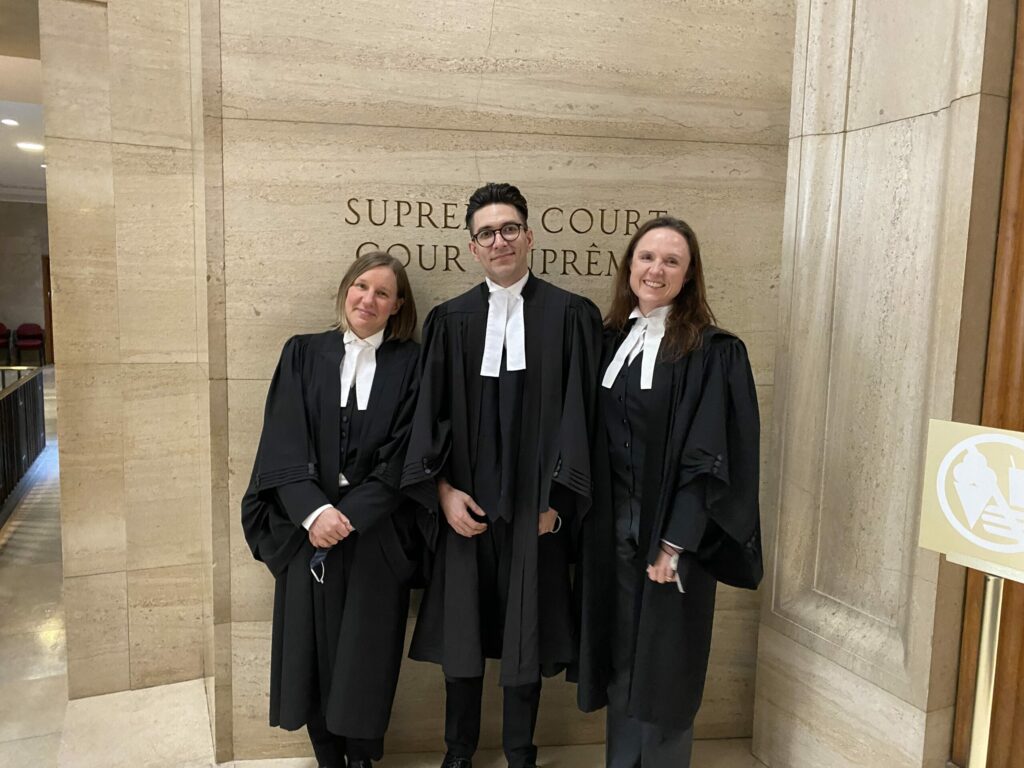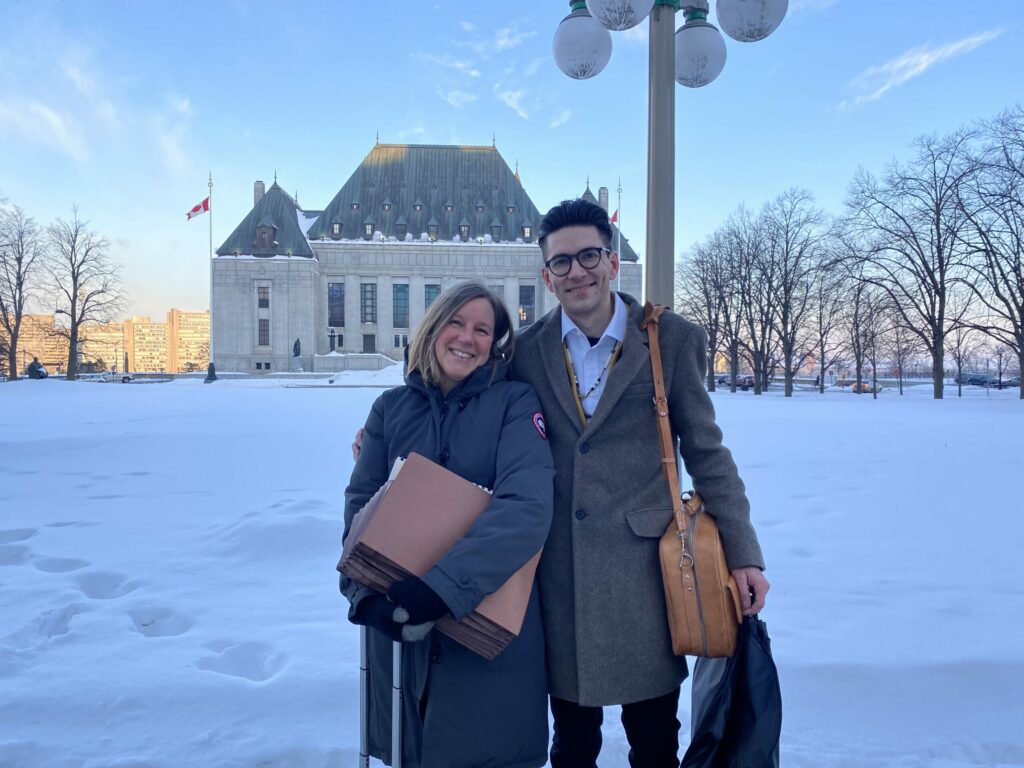On February 7, 2023, the Supreme Court of Canada heard the case Dickson v. Vuntut Gwitchin First Nation. Vuntut Gwitchin counsel Kris Statynk represented VGFN along with Mandell Pinder lawyers Krista Robertson and Elin Sigurdson.

From left to right: Krista Robertson, Kris Statynk, and Elin Sigurdson
Modern Treaties and Indigenous Self-Governance in the Supreme Court
The Supreme Court is being asked to determine whether a self-governing Indigenous First Nation is subject to the Canadian Charter of Rights and Freedoms, or whether the Nation’s own Constitution, including laws protecting its citizens’ rights and freedoms, should be respected.
Kris Statnyk told the Court:
Our Constitution should be treated as a constitution and understood through the Vuntut Gwitchin perspective as our supreme law… We define Vuntut Gwitchin law as including our Constitution.
At issue in this case is VGFN citizen Cindy Dickson’s ability to run for a position on Vuntut Gwitchin council while remaining resident outside of VGFN territory. According to the VGFN Constitution, if she were elected, Dickson would have to relocate from her home in Whitehorse, Yukon, to VGFN’s seat of government at Old Crow within 14 days of her election, which she was unwilling to do. Ms. Dickson asked for her claim—that this rule is discriminatory—be decided under the Charter rather than under VGFN’s own law.
Indigenous Governance and the Canadian Charter of Rights and Freedoms
The case raises fundamental questions that have not previously been decided by the Court, including the application of the Charter to Indigenous self-government, in the context of a modern Treaty and self-governance agreement in the Yukon. It also asks the Court to address the role of section 25 of the Charter in shielding the “aboriginal, treaty or other rights or freedoms that pertain to the Aboriginal Peoples of Canada” from derogation through the interpretation of the Charter.
The Appellant, Dickson, argued that VGFN’s authority and Constitution must “conform with the Constitution of Canada” and that the provision imposing the residency responsibility “trampled on” her equality rights under the Charter.
VGFN argued that the Nation should be allowed to exercise their inherent Indigenous laws, which include the ability to make laws around the selection of their leaders and the responsibilities those leaders must abide by. For VGFN there is a fundamental value that their leaders must be located at the seat of their government, on Settlement Lands in their Traditional Territory. The practical realities of self-government in a remote community also call for physical presence by leaders in that community. The VGFN Constitution itself, which gives the Nation the authority to address Dickson’s concerns, provides for protection of individual rights including the right to challenge laws under that Constitution.
More About Dickson v. Vuntut Gwitchin First Nation
Numerous intervenors made submissions, including the Government of Canada, three provinces and territories, several Indigenous governments, and a broad range of organizations representing Indigenous Peoples.
Professional observers have noted that this case featured positive moments in Canada’s judicial history when Supreme Court Justice Michelle O’Bonsawin, an Abenaki member of the Odanak First Nation, asked questions of Kris Statnyk, a member of Vuntut Gwitchin.

Krista Robertson and Kris Statnyk outside the Supreme Court of Canada.
For more information:
Shari Narine, “Top court hears argument on whether First Nations’ constitutions must conform to Canada’s Charter protections,” Windspeaker, February 9, 2023.
“Supreme Court of Canada hears appeal on Yukon First Nation’s residency requirement,” CBC News, February 7, 2023.
“Michelle O’Bonsawin, Canada’s 1st Indigenous Supreme Court justice, on demystifying the top court,” CBC News, February 23, 2023.